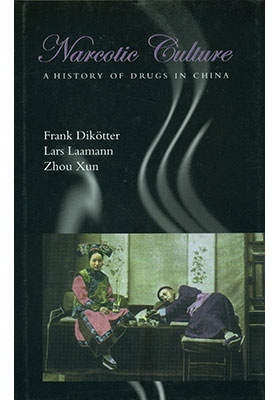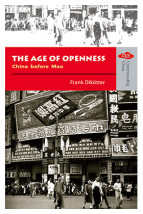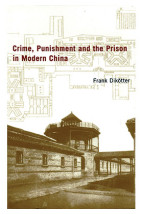Narcotic Culture
A History of Drugs in China
(麻醉文化:中國毒品史)
ISBN : 978-962-209-700-1
February 2004
288 pages, 5″ x 8.5″
For sale in Asia only
- HK$275.00
‘China was turned into a nation of opium addicts by the pernicious forces of imperialist trade.’ This book systematically questions this assertion, showing that opium had few harmful effects on either health or longevity, that most smokers used it in moderate quantities without any fatal ‘loss of control’, and that it was prepared and appreciated in highly complex rituals with inbuilt constraints on excessive use. In a culture of restraint, opium was an ideal social lubricant helpful in maintaining decorum and composure. It was also a medical panacea before the availability of aspirin and penicillin. If opium was medicine as much as recreation, Narcotic Culture provides abundant evidence that the transition from a tolerated opium culture to a system of prohibition produced a cure which was far worse than the disease. Heroin and morphine were snorted, smoked, chewed or injected in the wake of the anti-opium movement, often in conditions far more harmful than opium smoking. Also discussed by the authors in this fascinating study are China’s other drugs, from cocaine, nicotine, cannabis and synthetic opiates.
“For over a century both Chinese and Western historians have, for different reasons, acquired in the image of a nineteenth-century China enslaved by imperial bondage to a pandemic of opium addiction. Narcotic Culture offers an elegant, compelling and timely exposition of an entirely different story: a China where opium use was an indigenous addition to a long-established cultural complex, and where the true crisis of addiction was triggered not by opium itself but by the Western ‘anti-opium’ medications which followed in the wake of its prohibition. As such it not only revises a century of flawed historiography, but poses a profound challenge to the founding myth of contemporary drug policy.” —Mike Jay, author of Emperors of Dreams: Drugs in the Nineteenth Century
“A fascinating and provocative introduction to China’s narcotic history. The authors challenge the view of opium as the ultimate symbol of national humiliation, forced upon a helpless China by imperialist powers in a mantra perpetuated by Chinese and Western historians alike. Arguably the first comprehensive attempt to write a social history of drugs in China.” —Borge Bakken, Australian National University



